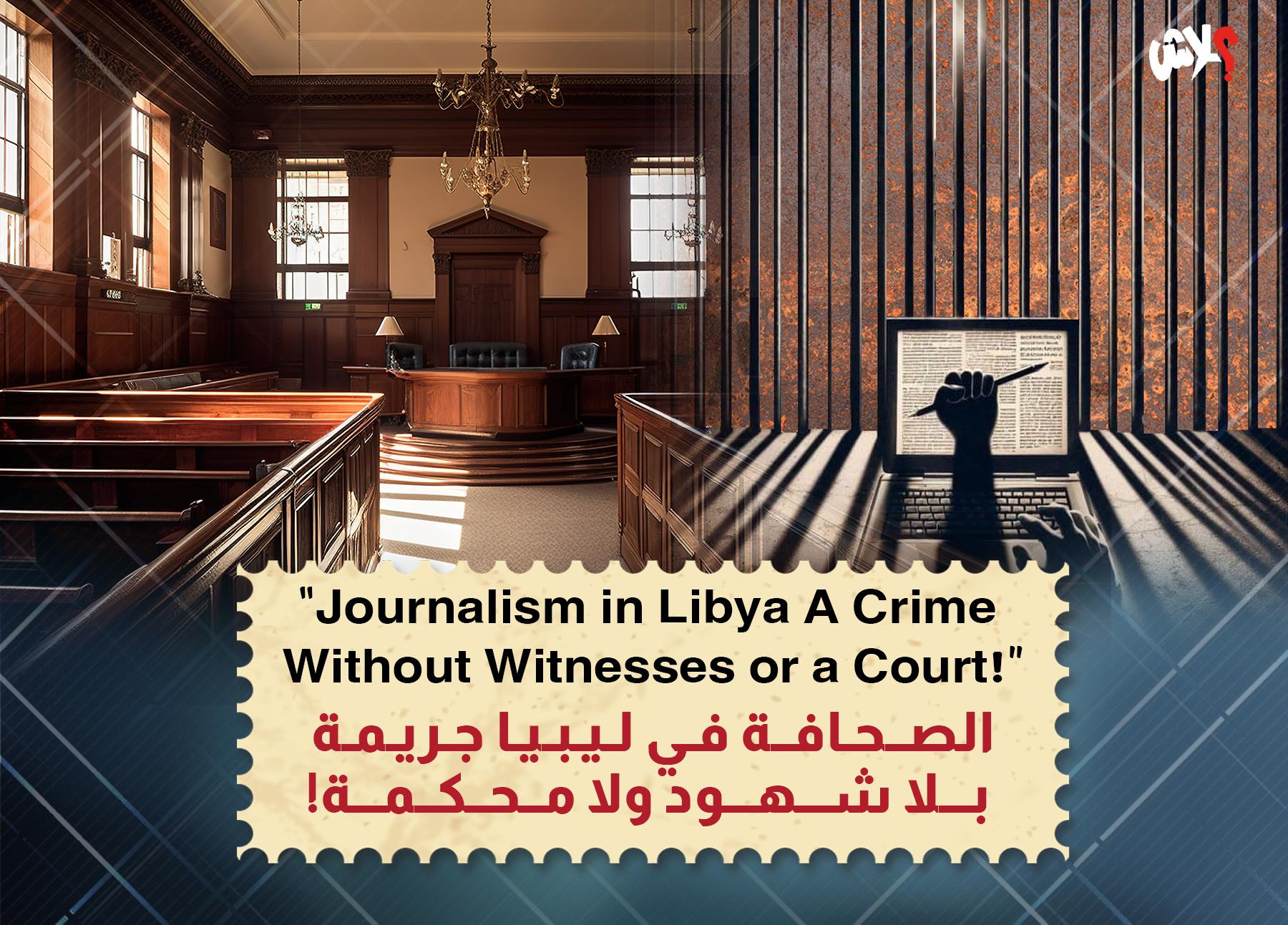Journalism in Libya: A Crime Without Witnesses or Court
In Libya today, freedom of expression seems to have become a luxury one that only those brave enough to face the unknown dare to exercise. Journalists, who are meant to be the guardians of truth, find themselves trapped between truth and untruth in a country where words have become a dangerous weapon one to be silenced rather than used to build an informed, aware, and conscious society.
Imagine being a journalist in Libya, where every word you write might be your last. This isn’t the plot of a novel it’s the daily reality for Libyan journalists, who live with the knowledge that a simple news report could lead to threats, abduction, or worse. This fear echoes in the words of every journalist: “I live each day as if I’m awaiting a sentence for a crime I didn’t commit. I’m not afraid of the truth but I fear saying it out loud.”
In July 2024, journalist Ahmad Al-Sanousi, editor-in-chief of Sada Economic, was arrested after publishing investigative reports exposing corruption scandals involving public officials. As usual, the implicated authority offered no clarification transparency is a rare commodity in a country that claims to support democracy and protect journalists. His arrest sent a chilling message to every current and future journalist: no one is safe.
Today, freedom of expression in Libya is nothing more than a hollow slogan, paraded at international forums while the truth is written in journalists’ blood. Successive governments have actively suppressed the press through vague, weaponized laws like the Cybercrime Law, which is used to silence journalists rather than protect them. Add to that the continued enforcement of the Publications Law No. 76 of 1972, enacted during the former regime. While originally intended to regulate the media, it has long faced criticism for including provisions that severely restrict free expression. It grants authorities the right to monitor publications and hold journalists accountable for their content. Decades after its issuance and even after the 2011 revolution this law continues to be used, directly or indirectly, to crack down on journalists and media professionals.
Since the beginning of Libya’s conflict, numerous journalists have been killed, kidnapped, or disappeared without a trace. Journalism has become a high-risk profession. When voices are silenced and hands are tied, society becomes a victim trapped in a flood of rumors and misinformation. Journalists now live in constant fear, leading to extreme self-censorship. Thus, the press once envisioned as the fourth estate that exposes truth has devolved into a mere echo of those in power. The Libyan citizen, who should be the primary beneficiary of a free press, is instead surrounded by fake news and fabricated narratives. In the absence of independent media, distinguishing truth from lies becomes impossible, leaving society lost in a fog of shadows and deception.
Yet despite these suffocating constraints, some still believe that journalism is the pulse of the people, the voice of justice, and the sword of truth. Courageous journalists continue their work, knowing that the pen may be mightier than the sword but that the sword still has the final say, unless something changes. The message that must reach every journalist and every Libyan citizen is this: journalism is not a luxury it is a necessity for building a democratic nation. Free speech is the real weapon against corruption, tyranny, and the unchecked abuse of power. Any society deprived of it is condemned to ignorance and subjugation.
One of the cruelest ironies is that the journalist who is supposed to serve society has now been cast as its enemy. No longer seen as the eyes and ears of the people, he is viewed as a threat to be eliminated. This tragedy reveals just how far the ruling authorities have strayed: they see truth as a threat to their survival. Silencing voices is not just a violation of human rights it’s a crime against the entire society. When truth becomes a crime, lies become the law. But as the saying goes: You can fool some of the people all of the time, and all of the people some of the time but you can’t fool all of the people all of the time.
Despite the pain and fear that haunt journalists, hope endures that one day, Libyan journalists will write freely, without fearing that their words may be their last. Journalism may be restrained today, but it will never be buried. And truth delayed though it may be will always find its way to the light.
And so, one question keeps echoing in my mind: Could these be my last words?

